Gojira's Joe Duplantier talks Magma, guitar gear and building his New York studio
How an NY relocation inspired a record
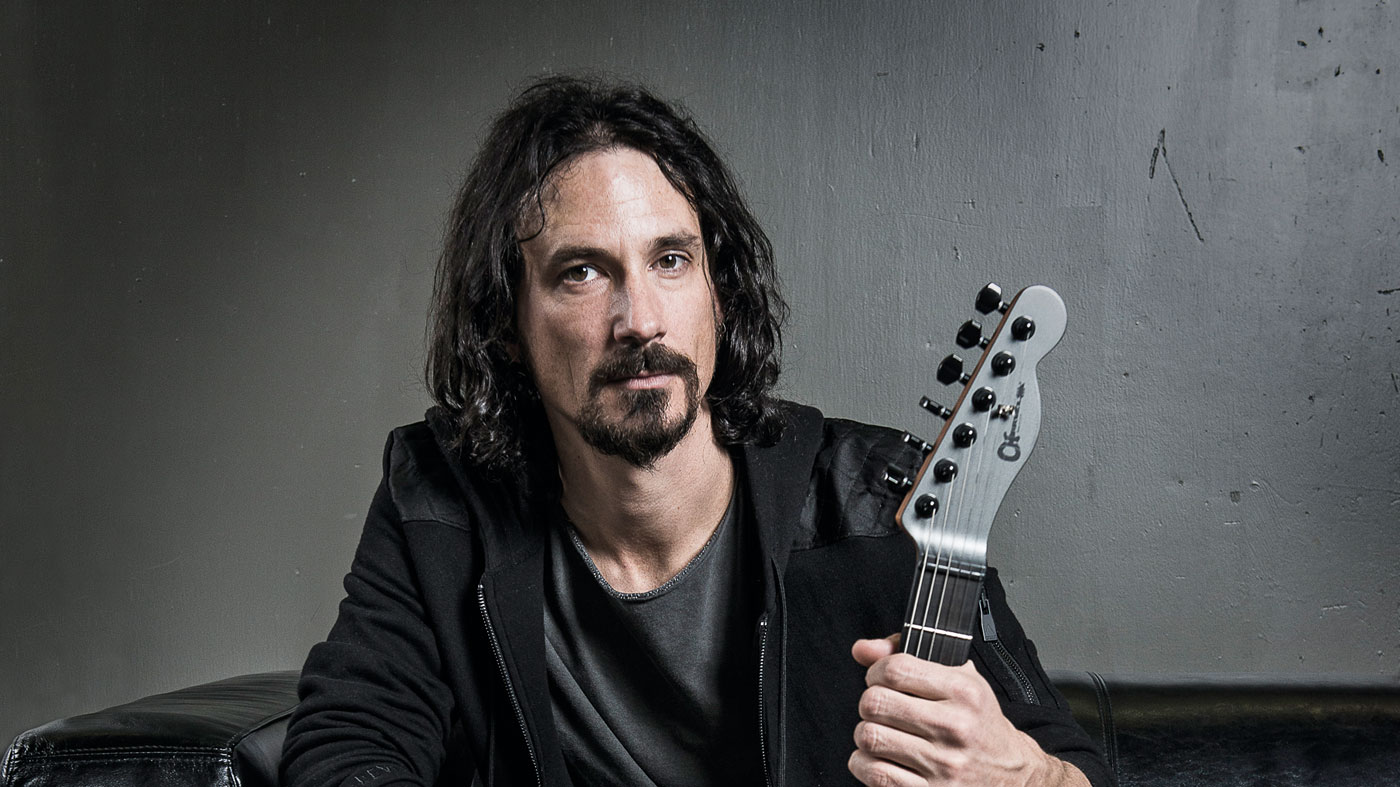
Introduction
As Gojira return with Magma, Joe Duplantier reveals the story of blood, sweat and tears behind it…
There are metal bands and then there is Gojira. Since their formation in 1996, close to the Spanish border in the south western French surf town of Ondres, there’s been something inexplicably different about their take on heavy music.
New York's brownstone buildings, yellow cabs and big rats became the landscape for this record
Even in metal’s obsession with subgenres, Gojira are a difficult band to tag. And that’s to their credit. But make no mistake, for all the spiritual, political and atmospheric elements that help set the band’s music apart, they are also a monolithically heavy proposition in rhythm and riff.
Now two decades into a career that has seen them rise slowly, but nonetheless steadily, the French quartet - founded by singer/ guitarist Joe Duplantier and sticksman brother Mario - have redefined themselves once again with their sixth full-length, Magma. Truth be told, it was an album born amid change.
“I moved to New York a few years ago and Mario joined us not too long after,” begins Joe, sat in the canteen area of London’s Holborn Studios on a breezy spring afternoon.
“The brownstone buildings, yellow cabs and big rats became the landscape for this record! I’ve always been attracted to that city, maybe it’s a past life thing, I don’t know! We’ve been a band for 20 years - digging, searching and inventing our sound. Being in New York is like the new chapter I’ve always wanted.”
It might seem like a long way indeed from the band’s beachy beginnings back in Ondres, but the Duplantier family already had strong ties some three and a half thousand-odd miles across the pond… In many ways, it already felt like home.
“My mum was born in the States, so the way we were raised was half-French and half- American,” explains Joe.
“We already had that in us. Even as a teenager when we visited the family there, part of me felt something. I guess I needed a change and New York is very wild, fast and dirty. People aren’t as judgemental, anything is possible… it’s in the air. You have to fight, though, otherwise it will fuckin’ beat you to the ground. I like to be challenged and New York is a very challenging city.”
Don't Miss
Gojira's Joe Duplantier: my top 5 tips for guitarists
Gojira's Mario Duplantier talks Magma, programmed beats and chasing Lars' sound
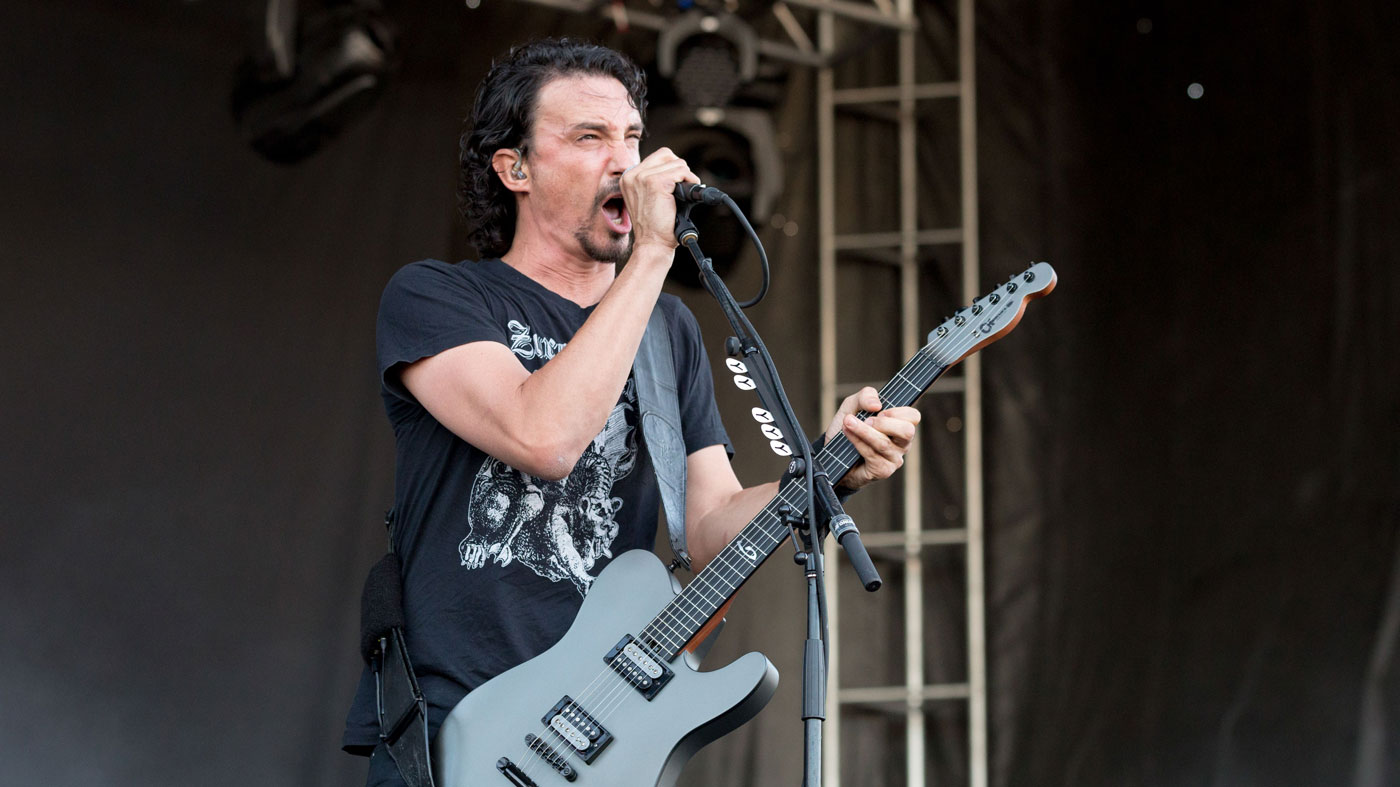
Testing, testing
The challenge of building a fully operational professional recording studio from scratch would probably prove impossible for most people.
I wondered if I was going mad. I spent all the money on wood and screws, and six months later, there was a studio right in front of me
Kitting out the gear alone would involve a painstaking decision process worthy of many a sleepless night, not to mention the physical preparation and assembly of raw materials.
It would prove very much possible for Joe, however. For half a year, the Gojira leader poured his heart and soul into creating a new HQ for his band in the outskirts of the Big Apple. It was a life-changing decision.
“I’ve made a few things before, like cabins,” Joe admits, with a calm modesty. “In 2002, I started building a house in the woods that took me two years. But this was very different! I was almost in a trance, alone in this giant warehouse in Queens, far from home, with a bunch of rats around me. Plus it was super cold in there with no heating.
“I wondered if I was going mad. I spent all the money on wood and screws, and was sat there with this pile of stuff in front of me thinking, ‘It’s on, dude!’ And six months later, there was a studio right in front of me. Everyone thought I was crazy before, now they knew I was crazy.”
The fruits of his efforts now stand tall in Queens’ Silver Cord Studios, which boasts an impressive 300 square foot-plus live room, over 70 microphones, with DigiDesign/ Focusrite and DDA consoles running into top-range outboard electronics and Pro Tools.
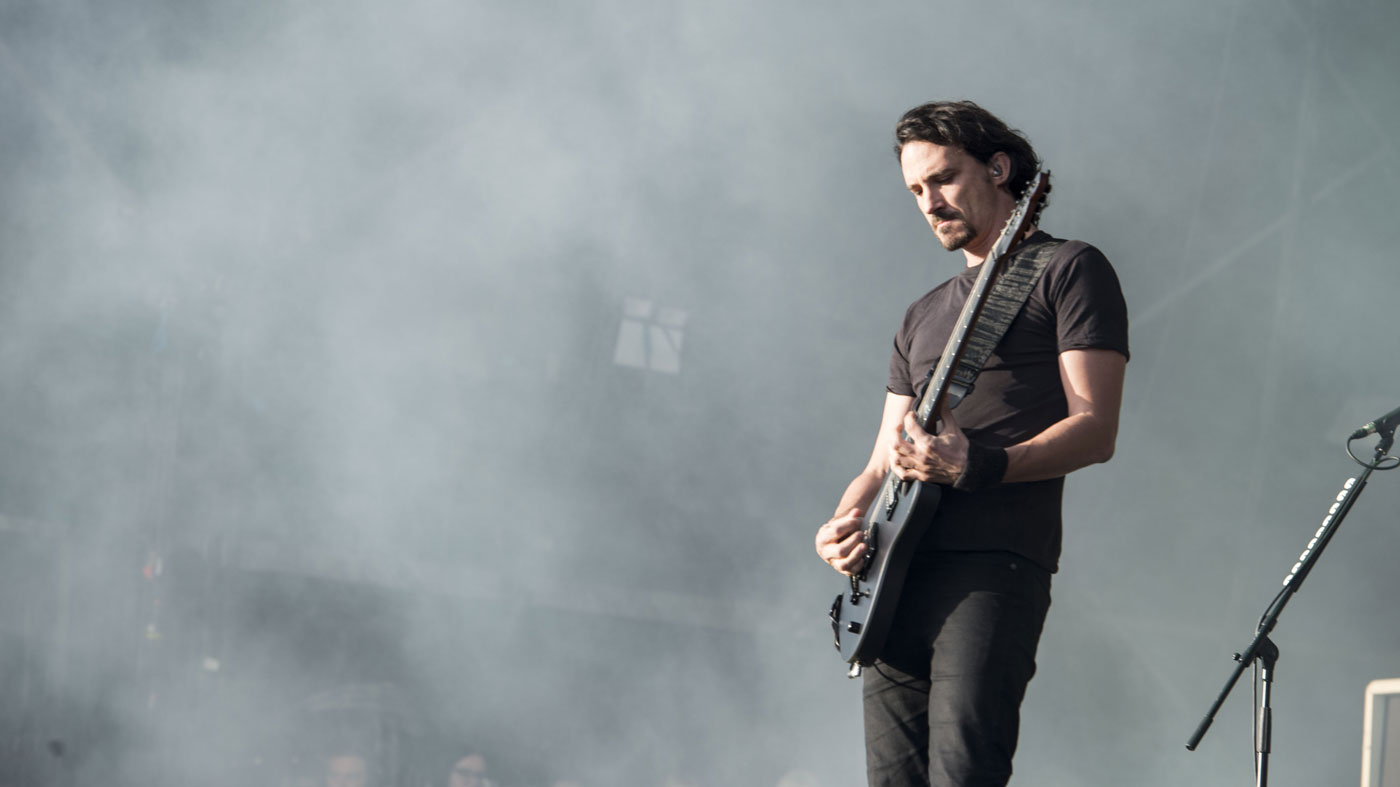
Dreams and nightmares
The studio opened for business this June. It’s a dream scenario for any modern recording artist hoping to recoup label advances in an industry hit by declining physical sales - while streaming and other somewhat less legal means of music consumption continue to soar.
Instead of spending all that money on sessions, why not use it for gear and build my own studio
“Every time we make a record, it costs a lot of money,” admits Joe, who inherited his love of crafts from his father.
“The label gives us an advance, which gets swallowed in studio costs, like thousands of dollars a day. Instead of spending all that money on sessions, why not use it for gear and build my own studio with some nails, wood and glue?! This was something we needed - a space to create, almost like a cocoon.”
The band, completed by guitarist Christian Andreu and bassist Jean-Michael Labadie, had been tracking Magma for 10 days when Joe received news of his mother had fallen seriously ill.
The brothers stopped working and flew right back to France, where they sat by their mother’s side until her passing in July. When the pair returned to their new adoptive home, this record had taken on a whole new level of meaning.
“It drastically affected the creative process,” sighs the frontman. “I kinda want to say the entire record is all about that… I’m all about that, I mean, I lost my mum. It’s difficult to explain the reasons behind the art sometimes. You recycle every single thing that happens to you. We’re all confronted by death… that’s what people do. They die!
“It’s interesting how something like that can be that extraordinary and painful, yet totally normal. Life has all these traps and forces you to evolve, so our music is a good image of what we are - anger, frustration, violence… but also peace. There’s a good intention behind the music, which is to elevate ourselves and the listener, somehow.”
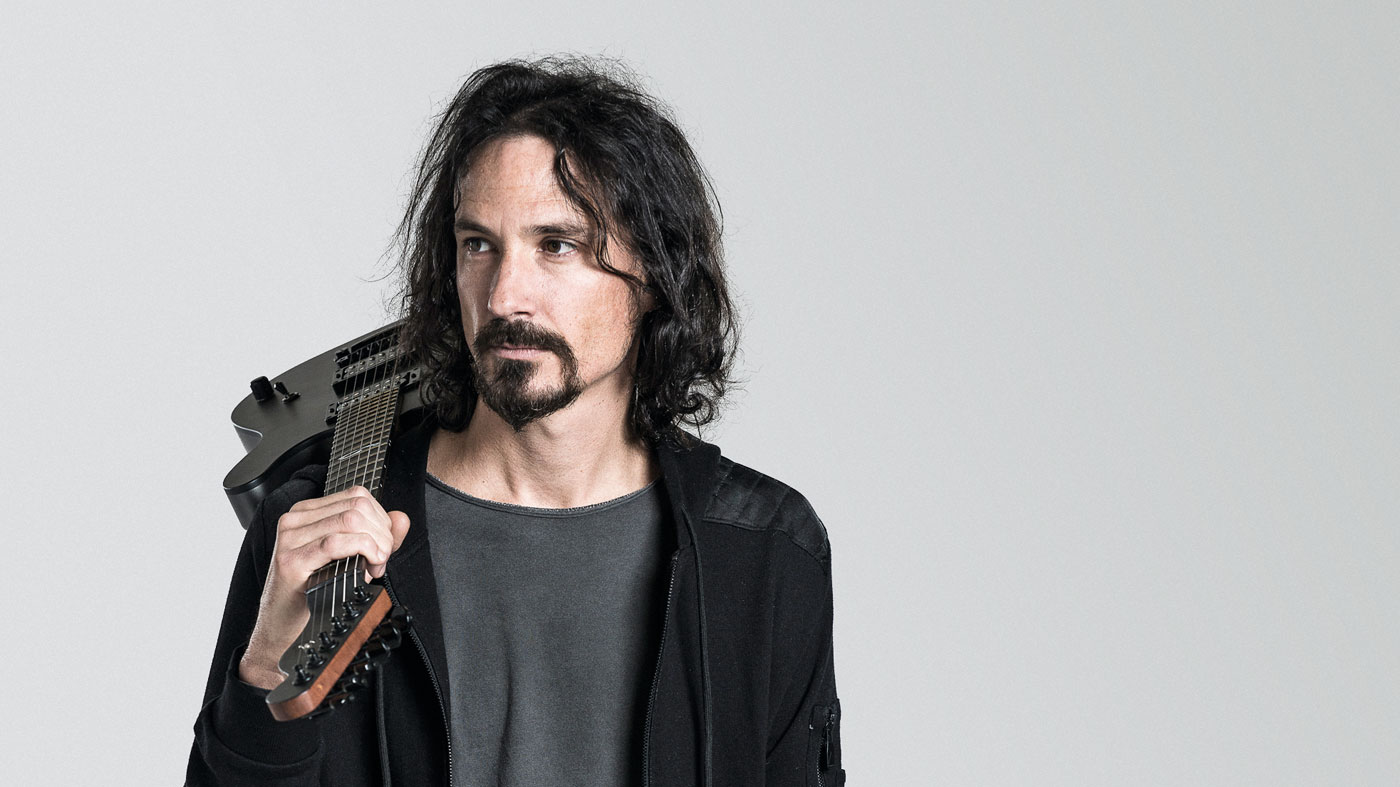
Sonic simplicity
The 10 tracks that build their sixth opus could very well embody Gojira’s finest work yet. While Joe’s vocals sound cleaner and more focused than ever before, the riffs themselves are still powerful to trouble the very laws of physics.
It echoes the spiritual pilgrimages of predecessor, L’ Enfant Sauvage, however at a simplified pace that creates a more bludgeoning overall vibe.
This was the first time we’ve actually used a pedal. Before that, our noises have been hand-made
“It’s almost a paradox,” notes Joe, before a short pause. “Our last album was more technical, there was more double bass pedal going on and notes-per-second, but the overall tempo and dynamic was actually slower. If you were to walk to that album, it’s would be a slow walk. This is a more dynamic record, which in a way is faster… even though it doesn’t seem or feel like it.”
Another notable difference is the use of a DigiTech Whammy on tracks such as Stranded and Only Pain - a new addition to a guitar setup that has otherwise remained practically unchanged over the years. Before this, the only effect worthy of their loyalty had been the distortion itself.
“We’ve always been very minimalist, mainly because of my lack of gear knowledge,” shrugs Joe. “For me, when it’s time to record, I just run around, try to find my guitar, quickly get it all working and wrestle it into submission... But the Whammy is an exciting and cool tool,” he grins, with a boyish laugh.
“This was the first time we’ve actually used a pedal. Before that, our noises have been hand-made, like the pick scrape, which came from an accident on tour when I made this sound with strings and thought it was cool. So I did it again the next night and wrote it into some of our songs, along with pinched harmonics and weird bends.
“People always ask what pedal I use, and I always have to say, ‘I just beat my guitar and find sounds!’ I was really proud of that. The only effect for us really has been the distortion of the amp. Now it will be impossible for me to play these riffs without the Whammy!”
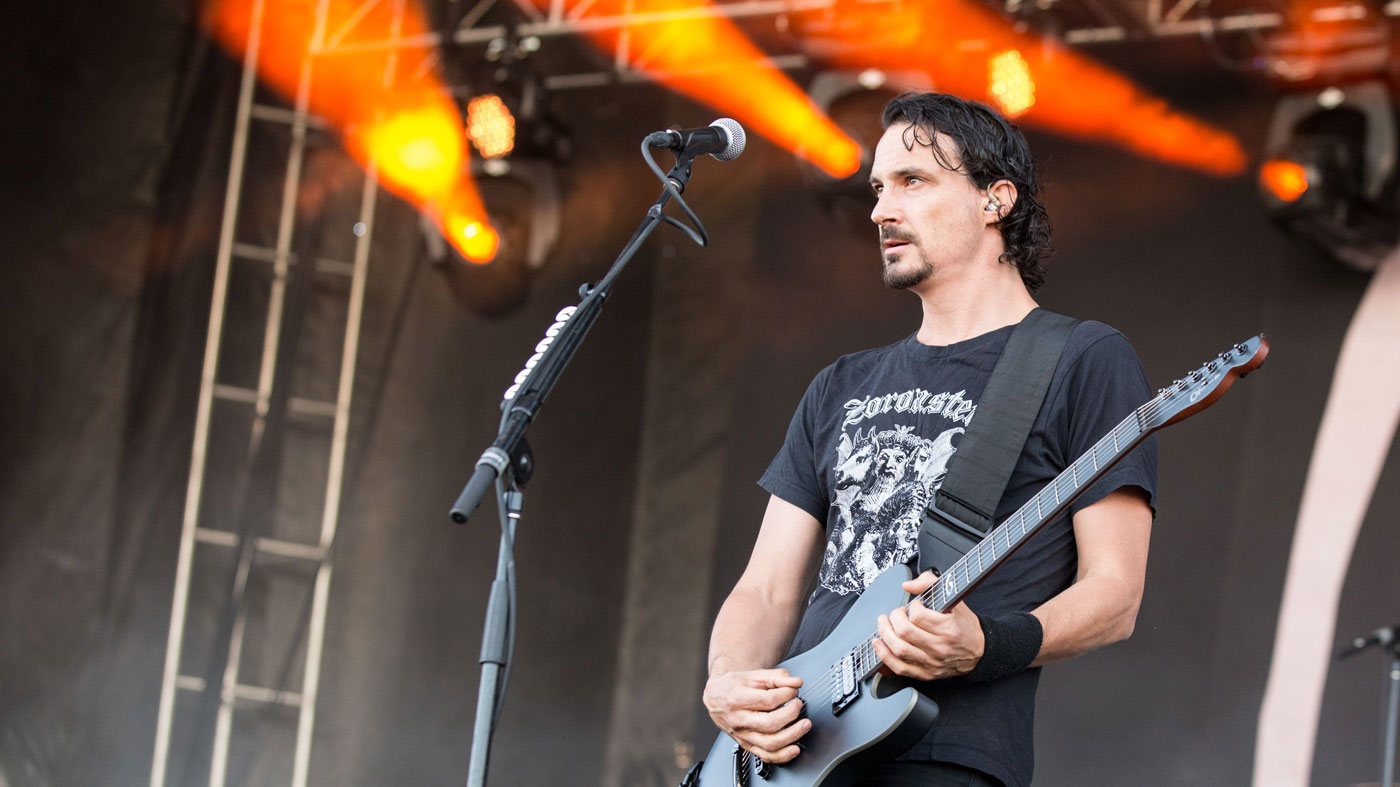
Van Hailing
For a band that by their own admission grew into the habit of stacking endless guitar tracks on top of each other, with a single vocal line squeezed into whatever’s left in the sonic spectrum, Magma has seen the Gallic metal titans gravitate towards the opposite extreme.
One Shure SM57, right in front of the EVH speaker. It’s not processed, it’s a very pure sound
“I wanted to record something that allowed people to hear the texture and tone of the guitars more than ever before,” he continues.
“Like the pick attack on the strings. So rather than a wall of sound, it would be at most two guitars. During the choruses I added a Telecaster underneath my signature Charvel - I love the sound of them because they’re very bright and make a big difference even when super low in the mix. It brings a different vibe with the single-coils.”
The guitars were fed into the Fender-produced EVH 5150 III amps Joe swears by onstage, yet another tried-and-tested staple of the Gojira sound. It wasn’t even a case of blind faith, both guitarists kept their tonal options open... there simply wasn’t need for them to use anything else.
“We had a DI so we could re-amp everything if we weren’t satisfied,” continues the singer/ guitarist. “You’d think for such an important album, we’d do a bit of that, but we didn’t even have to bother… one Shure SM57, right in front of the EVH speaker. It’s not processed, it’s a very pure sound. They don’t give me money to say that, I just love the amps they send me.
“Over the years, I’ve A/B’d a bunch of stuff, like really expensive gear off anyone I knew… Diezels always sound great, loud as fuck, super sharp and so good to play, but for some reason the EVH always suits me best.”
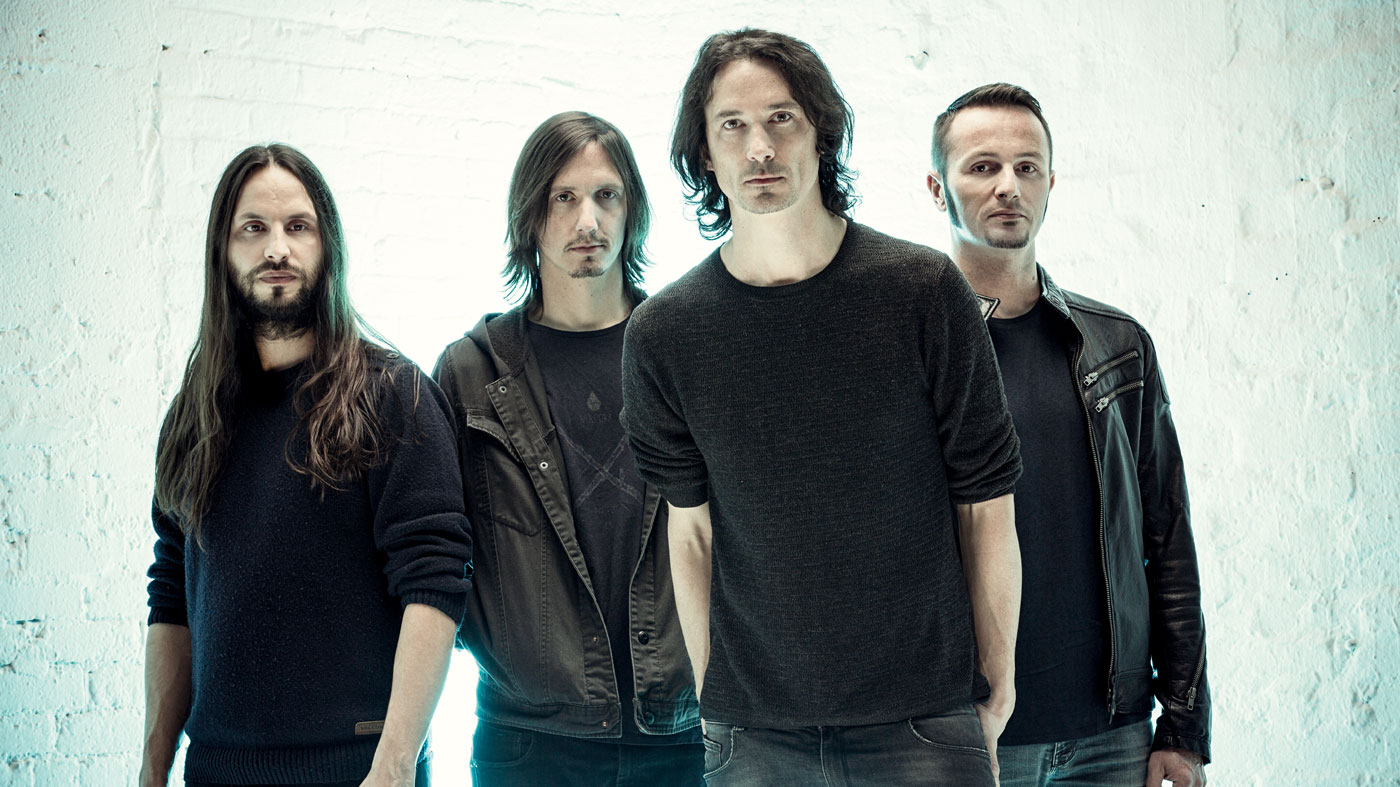
Through the never
In many ways the fact that Gojira stand before us in 2016 is an achievement in itself. They’ve had to become one of the hardest working bands in metal to elevate themselves outside France - a country that doesn’t export a lot of heavy music.
You’ve got to be strong to be in this business, you gotta have nerves and keep your head cool
Who knows, perhaps if they’d originated from Los Angeles or even Gothenburg, it could have been a much more straightforward career path. Regardless, Joe is the kind of person that doesn’t give in easy...
“France doesn’t have the infrastructure, no experience of managing an artist outside of the country,” he says. “There are some structures, but they’re just for France and go hand-in-hand with government subsidies. It’s like a well-oiled machine, there is a scene now… but when we started, nobody was playing outside of Paris.
“Whenever people said French metal bands, it’d be like, ‘What?!’ We partnered up with a guy called Laurent Merle, who runs Listenable Records. He’s like a superhero to the French metal scene and even though we’re now on Roadrunner, we still work on projects together.
“It’s interesting, sometimes I feel as if we’re a bit doomed and then I tell myself not to be paranoid. Life is hard for everybody, it’s the same everywhere you go. You’ve got to be strong to be in this business, you gotta have nerves and keep your head cool and stay centred. We’ve never gone down, it’s been just growing very slowly, in baby steps. I like it that way - a band that has fast success will inevitably go down like that later on.”
He certainly has a point. Listen to any Gojira album from over the years, and it will stand for a breed of artistry that knows no sacrifi ce. That quiet confi dence which fl ows through their personalities echoes across the music - but this time round, especially when you consider the journey that behind it, Gojira’s metallic potency has truly peaked on Magma.
Magma is out now Roadrunner Records. Gojira tour the UK in November - full dates are below.
Wed 23 Nov - MANCHESTER, England - Arena
Thu 24 Nov - LONDON, England - O2 Arena
Sat 26 Nov - NOTTINGHAM, England - Motorpoint Arena
Sun 27 Nov - BIRMINGHAM, England - Genting Arena
Mon 28 Nov - CARDIFF, Wales - Motorpoint Arena
Thu 1 Dec - GLASGOW, Scotland - Hydro
Fri 2 Dec - LEEDS, England - First Direct Arena
Don't Miss
Gojira's Joe Duplantier: my top 5 tips for guitarists
Gojira's Mario Duplantier talks Magma, programmed beats and chasing Lars' sound
Amit has been writing for titles like Total Guitar, MusicRadar and Guitar World for over a decade and counts Richie Kotzen, Guthrie Govan and Jeff Beck among his primary influences. He's interviewed everyone from Ozzy Osbourne and Lemmy to Slash and Jimmy Page, and once even traded solos with a member of Slayer on a track released internationally. As a session guitarist, he's played alongside members of Judas Priest and Uriah Heep in London ensemble Metalworks, as well as handling lead guitars for legends like Glen Matlock (Sex Pistols, The Faces) and Stu Hamm (Steve Vai, Joe Satriani, G3).


